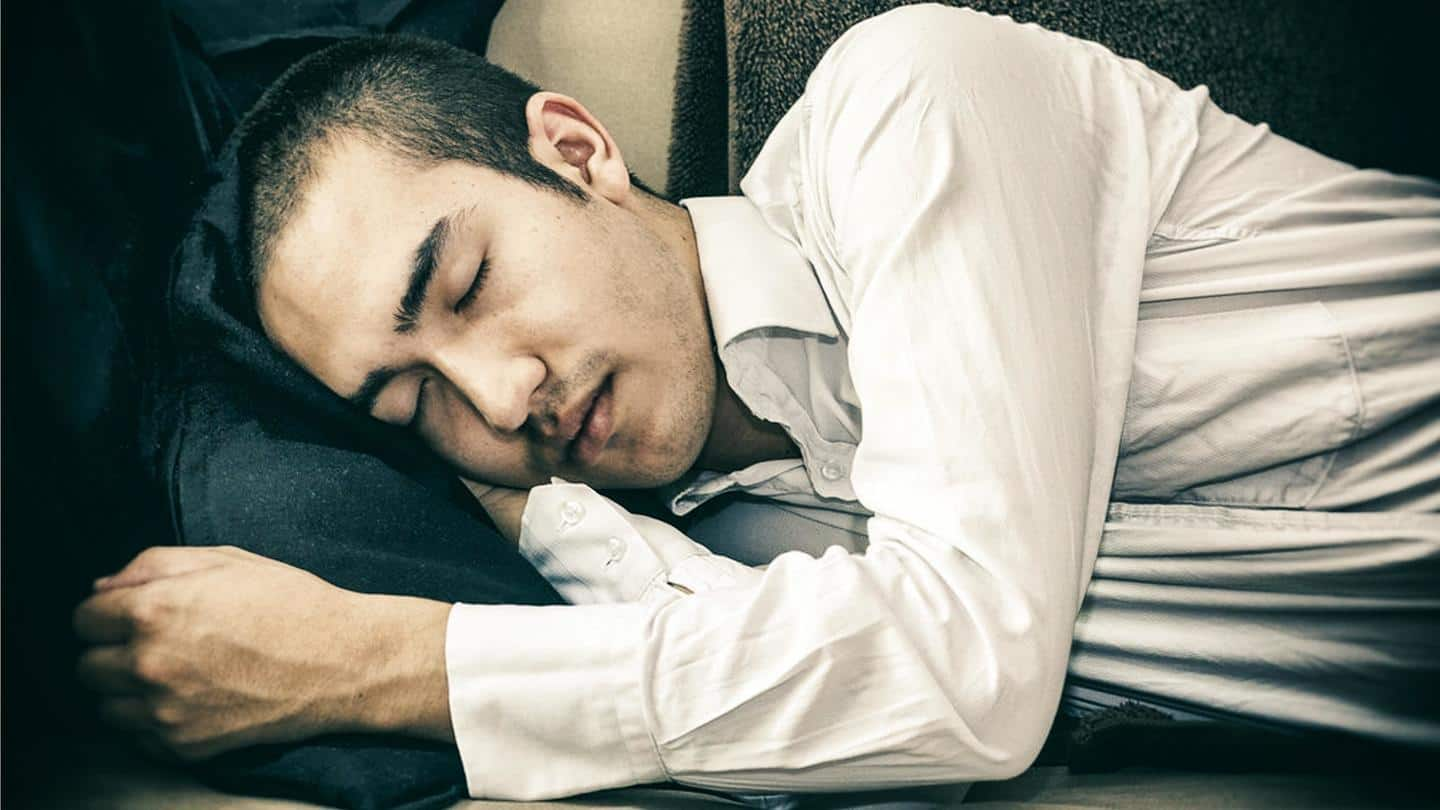
World Sleep Day: What causes sleep apnea (and the symptoms)
What's the story
Sleep apnea has become a huge health concern in recent times.
This sleep disorder shouldn't be taken lightly as it can lead to various other health hazards.
Sleep apnea basically means when breathing repeatedly stops and starts while you are asleep.
Loud snoring is a common sign of the problem.
Let us learn more about this sleep disorder.
Information
Types of sleep apnea
1. Obstructive sleep apnea: This type of sleep apnea occurs when the muscles in the back of your throat relax more than usual to allow normal breathing. This leads to the narrowing of the airway, hindering your breathing for 10 seconds or more.
Types
Types of sleep apnea
2. Central sleep apnea: Although rare, this happens when your brain fails to send signals to your breathing muscles. You are basically not breathing for a short span of time and might find yourself waking up with a choking sensation.
3. Complex sleep apnea: This might occur in some cases for people being treated for obstructive sleep apnea who develop central sleep apnea.
Symptoms
Know about the symptoms
It isn't easy to diagnose if one is suffering from obstructive sleep apnea or central sleep apnea as the symptoms are similar.
Loud snoring is the most commonly reported symptom. Sometimes, the breathing also stops for a short span.
You might also find yourself waking up with a dry mouth, fighting for breath, and experiencing a headache in the morning.
Information
Few more symptoms
Insomnia, or difficulty staying asleep or falling asleep, is another common symptom. On the other hand, some people also report excessive drowsiness during day time. Such people also face issues while trying to concentrate on something and are generally irritable.
Causes
What leads to sleep apnea?
Obesity is one of the major reasons for sleep apnea. Most often, such people also have thicker necks, a reason for narrow airways.
Men are more at risk of developing apnea, although overweight women might also report the issue.
Alcohol is known to relax the throat muscles, so try to avoid it if you face breathing problems while asleep.
Effects
Dangers associated with the disorder
High blood pressure is one of the major fallouts of sleep apnea. Skipped breathing leads to lower oxygen levels in the blood, making your heart do extra work.
Heart attacks and strokes are other consequences of sleep apnea for the same reason.
Such people are also at a higher risk for developing type-2 diabetes and liver diseases.
Treatment
How to treat sleep apnea?
The initial steps for treating sleep apnea include bringing about a few changes in your everyday lifestyle.
You must follow a heart-healthy balanced diet, develop healthy sleeping habits and manage your weight.
It's also important to limit alcohol consumption and quit smoking.
Medical therapies for sleep apnea include Continuous Positive Airway Pressure therapy, Bi-Level PAP, Adaptive Servo-Ventilation along with some prescribed medications.